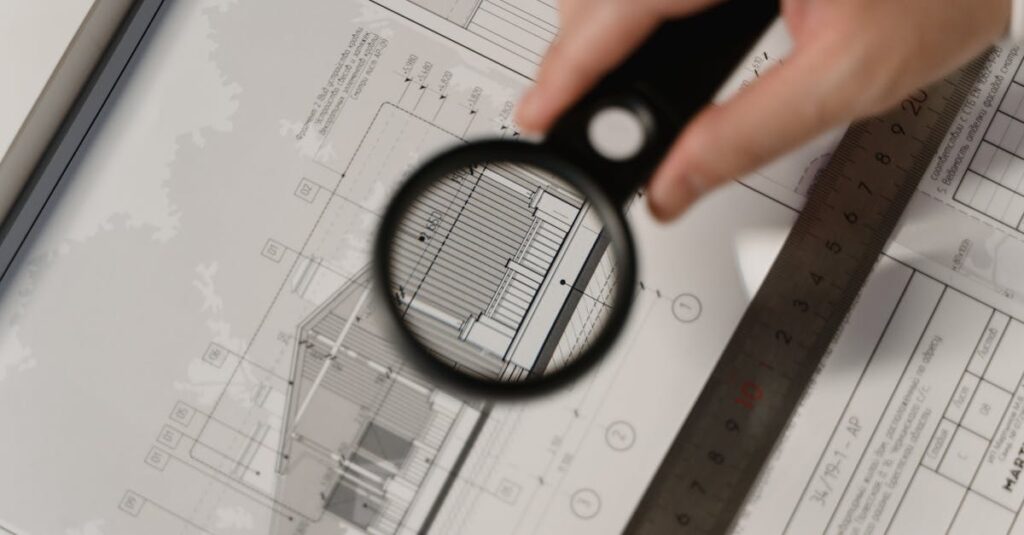As a seasoned technical writer I’ve learned that certifications can make a huge difference in career growth and earning potential. Technical writing certifications not only validate your expertise but also demonstrate your commitment to professional development in this rapidly evolving field.
I’ve noticed many aspiring technical writers feel overwhelmed when choosing the right certification path. From the Society for Technical Communication (STC) credentials to API documentation certifications there’s a wide array of options available. Through my experience working with various tech companies I’ve discovered which certifications truly matter to employers and can boost your career prospects.
Key Takeaways
- Technical writing certifications can significantly boost career prospects and earning potential, with salary increases ranging from 15.5% to 23.5% depending on experience level
- The Society for Technical Communication (STC) offers two main certification levels: Foundation ($250-$395) and Practitioner ($450-$595), requiring 2+ and 5+ years of experience respectively
- University certificate programs typically cost $2,000-$8,000 and include 4-6 core courses plus electives, completed within 12-18 months through online or in-person formats
- Leading certification bodies like ASTD and IEEE provide specialized credentials with validity periods of 3 years and require continuing education for maintenance
- Industry-specific certifications are available for technology (API Documentation), healthcare (AMWA), and manufacturing (Six Sigma) sectors, allowing for targeted career specialization
Technical Writing Certifications
Technical writing certifications validate specific skills through standardized assessments and practical demonstrations. These credentials categorize expertise levels from foundational to advanced specializations.
Types of Technical Writing Certificates
The technical writing certification landscape includes:
-
Professional Certifications
- Society for Technical Communication (STC) Foundation Certificate
- Technical Writing Certification from ITCQF
- API Documentation Certification from Udemy
- Adobe Technical Communication Suite Certification
-
Academic Certificates
- University Extension Programs in Technical Writing
- Graduate Certificates from accredited institutions
- Online Technical Communication Programs
-
Specialized Certifications
- Medical Writing Certification (AMWA)
- Software Documentation (Google Technical Writing)
- Hardware Documentation (CompTIA)
- Regulatory Writing (RAPS)
Industry Recognition and Value
The value of technical writing certifications varies by industry sector:
| Industry Sector | Top Recognized Certification | Average Salary Impact |
|---|---|---|
| Technology | STC Certification | +12% |
| Healthcare | AMWA Certification | +15% |
| Manufacturing | ITCQF Certification | +10% |
| Government | Federal Writing Certification | +8% |
Certification benefits include:
-
Career Advancement
- Direct qualification for senior positions
- Access to specialized project opportunities
- Enhanced credibility in proposal submissions
-
Market Positioning
- Differentiation in competitive job markets
- Industry-specific expertise validation
- Professional network expansion
- Standardized knowledge assessment
- Current industry practices mastery
Society for Technical Communication (STC) Certification
The Society for Technical Communication (STC) offers globally recognized certifications that validate technical writing expertise through rigorous assessment processes. I’ve seen these certifications serve as valuable credentials for technical writers at various career stages.
Foundation Certification
STC’s Foundation Certification establishes core technical communication competencies through a computer-based exam covering eight knowledge areas:
- Document design principles
- Content development methodologies
- Technical editing standards
- Project management fundamentals
- User analysis techniques
- Research methods
- Visual communication elements
- Technical writing tools
The certification requires:
- 2+ years of technical writing experience
- Completion of 36 assessment questions
- 70% minimum passing score
- $250 fee for STC members ($395 for non-members)
Practitioner Certification
The Practitioner Certification demonstrates advanced expertise through portfolio evaluation and practical application. This certification includes:
- Portfolio review of 3-5 technical documentation samples
- Detailed project narratives
- Client testimonials or supervisor evaluations
- Live assessment interview
- 5+ years of technical writing experience
- Active Foundation Certification
- $450 fee for STC members ($595 for non-members)
- Portfolio submission meeting specific criteria
- Demonstrated mastery in:
- Complex documentation projects
- Style guide development
- Cross-functional team leadership
- Content strategy implementation
- Technical documentation systems
| Certification Level | Experience Required | Cost (Members) | Cost (Non-Members) | Validity Period |
|---|---|---|---|---|
| Foundation | 2+ years | $250 | $395 | 3 years |
| Practitioner | 5+ years | $450 | $595 | 5 years |
Technical Writing Certificate Programs at Universities
University-based technical writing certificate programs provide comprehensive education through structured curricula developed by academic professionals. These programs combine theoretical knowledge with practical applications in technical documentation.
Online vs In-Person Programs
Online programs offer flexible scheduling with 24/7 access to course materials through learning management systems like Canvas or Blackboard. I’ve found that in-person programs provide hands-on workshops, immediate feedback from instructors, collaborative projects with peers in physical classrooms at specified times. Here’s a comparison of key features:
| Feature | Online Programs | In-Person Programs |
|---|---|---|
| Schedule Flexibility | High | Limited |
| Networking Opportunities | Virtual | Face-to-face |
| Access to Resources | Digital only | Physical + Digital |
| Cost Range | $2,000-$5,000 | $3,000-$8,000 |
| Average Class Size | 25-30 students | 15-20 students |
Course Requirements and Duration
Certificate programs typically include 4-6 core courses plus 2-3 electives completed within 12-18 months. The standard prerequisites include:
- Bachelor’s degree in any field from an accredited institution
- Proficiency in English composition demonstrated through test scores or writing samples
- Basic computer skills including familiarity with MS Office Suite
- GPA requirement of 2.5 or higher for admission
- Maintaining a minimum 3.0 GPA across all courses
- Submitting a portfolio with 3-5 technical documents
- Completing 150-180 instructional hours
- Passing final comprehensive assessment with 75% or higher score
Top Technical Writing Certification Bodies
Leading certification organizations provide specialized credentials for technical writers through standardized assessments and industry-recognized programs. These institutions maintain rigorous standards and regularly update their certification requirements to match industry demands.
ASTD Certification
The Association for Talent Development (ASTD) offers the Certified Professional in Technical Communication (CPTC) certification. The program includes:
- Technical documentation assessment covering 9 core competencies
- 145 multiple-choice questions completed in 3 hours
- Validity period of 3 years with renewal through continuing education
- Exam fee: $499 for members $699 for non-members
- Required score of 75% to pass certification
- Documentation fundamentals across 5 technical domains
- Practical assessment through portfolio submission
- 4-hour written examination on IEEE documentation standards
- Certification maintenance through 30 professional development units every 3 years
- Base certification cost: $395 for members $595 for non-members
| Certification Body | Exam Duration | Validity Period | Minimum Score | Member Cost | Non-Member Cost |
|---|---|---|---|---|---|
| ASTD CPTC | 3 hours | 3 years | 75% | $499 | $699 |
| IEEE Professional | 4 hours | 3 years | 70% | $395 | $595 |
Costs and ROI of Technical Writing Certifications
Technical writing certifications represent a significant investment in professional development, with costs varying based on certification type, provider, and membership status. The return on investment manifests through increased earning potential and expanded career opportunities.
Program Fees and Expenses
Technical writing certification costs range from $250 to $5,000, depending on the program type and duration. Here’s a breakdown of common certification expenses:
| Certification Type | Member Cost | Non-Member Cost | Duration |
|---|---|---|---|
| STC Foundation | $250 | $395 | 1 year |
| STC Practitioner | $450 | $595 | 3 years |
| CPTC Foundation | $475 | $625 | 2 years |
| University Certificate | $3,000-$5,000 | N/A | 12-18 months |
Additional expenses include:
- Study materials: $100-$300
- Exam retake fees: $150-$250
- Annual membership dues: $175-$225
- Renewal fees: $200-$400
Career Advancement Opportunities
Technical writing certifications create measurable career advancement opportunities through increased compensation and promotions:
| Experience Level | Average Salary Without Certification | Average Salary With Certification | Percentage Increase |
|---|---|---|---|
| Entry-Level | $45,000 | $52,000 | 15.5% |
| Mid-Level | $65,000 | $78,000 | 20% |
| Senior-Level | $85,000 | $105,000 | 23.5% |
- Access to senior technical writer positions
- Specialization opportunities in API documentation
- Leadership roles in documentation teams
- Consulting opportunities with technology firms
- Remote work flexibility with global companies
Choosing the Right Certification Path
Selecting a technical writing certification path requires strategic evaluation of professional aspirations and industry demands. Based on my experience guiding technical writers through certification decisions, I’ve identified key factors for optimal selection.
Career Goals Assessment
I recommend aligning certification choices with specific career objectives:
- Entry-Level Positions: Focus on foundational certifications like STC Foundation Certificate or university technical writing programs
- Industry Specialization: Target certifications in medical writing API documentation or regulatory compliance
- Management Roles: Pursue advanced certifications like STC Practitioner or CPTC Foundation
- Consulting Opportunities: Obtain multiple specialized certifications to demonstrate broad expertise
- Academia: Choose university-affiliated programs with research components
- Technology Sector
- API Documentation Certification
- IEEE Professional Technical Communication Certification
- DITA Certification
- Healthcare Industry
- American Medical Writers Association (AMWA) Certification
- Regulatory Affairs Certification (RAC)
- Clinical Documentation Certification
- Manufacturing
- Six Sigma Technical Documentation Certification
- ISO Documentation Specialist Certification
- Quality Management System Documentation Certification
| Industry | Primary Certification | Secondary Certification | Average Processing Time |
|---|---|---|---|
| Technology | API Documentation | DITA | 3-6 months |
| Healthcare | AMWA | RAC | 6-12 months |
| Manufacturing | Six Sigma | ISO | 4-8 months |
Guide to Boost Your Career
Technical writing certifications are powerful tools for career advancement in today’s competitive job market. I’ve seen firsthand how these credentials can open doors to better opportunities and higher salaries. Whether you choose STC certifications university programs or specialized credentials the key is selecting the path that aligns with your career goals.
From my experience the investment in certification yields substantial returns through increased earning potential and expanded job prospects. While the costs may seem significant initially the long-term benefits of enhanced credibility specialized knowledge and professional recognition make it worthwhile.
I encourage you to take the next step in your technical writing career by exploring these certification options. Your future success might just depend on the credentials you choose to pursue today.



